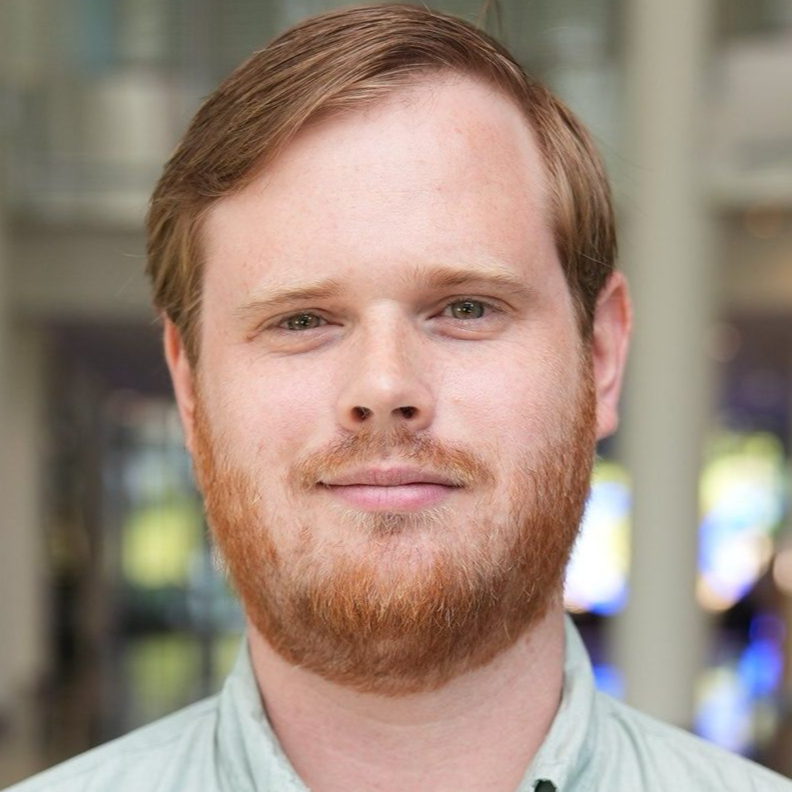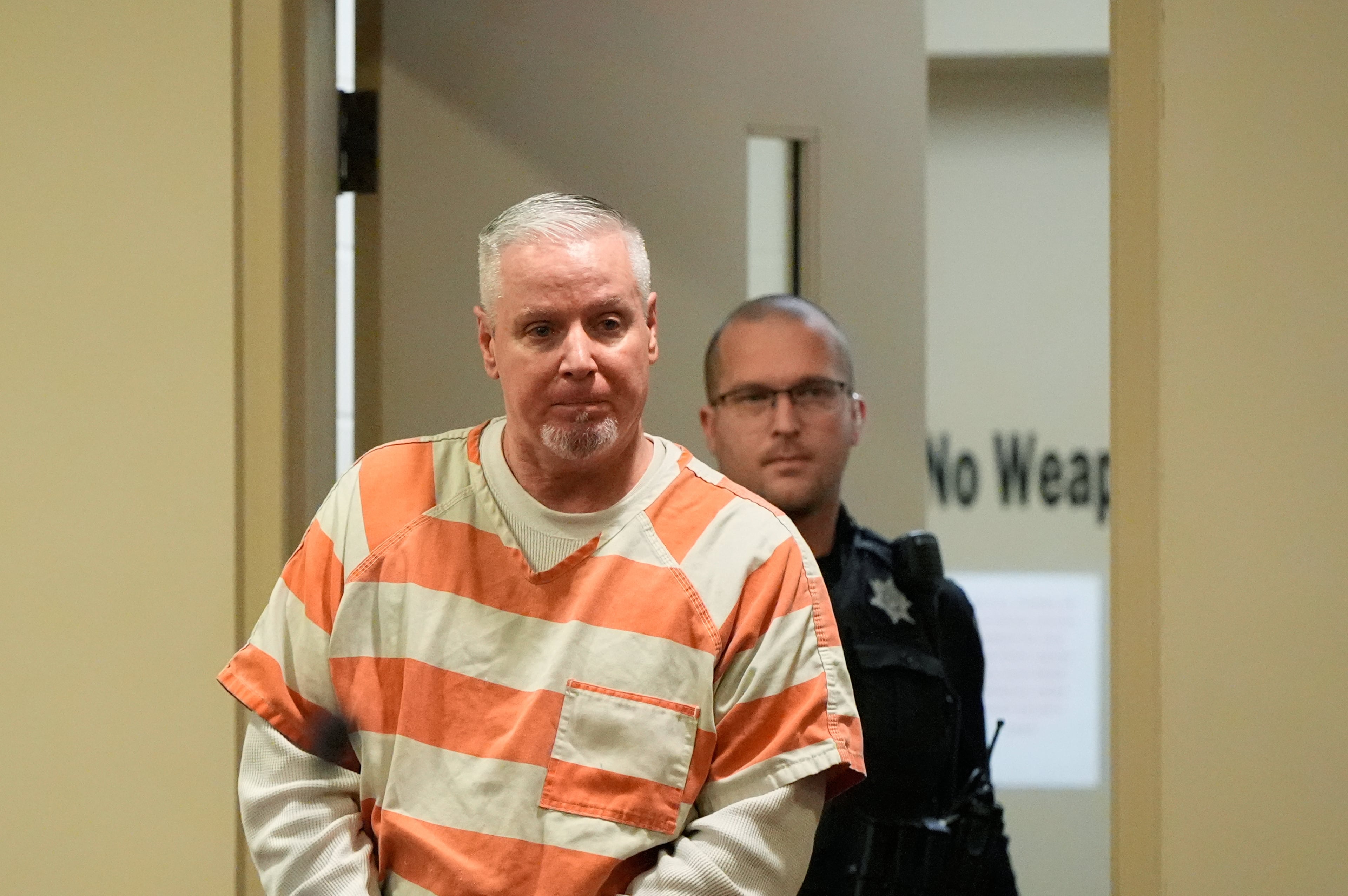Can intelligence experts make schools safe? Cobb quietly commits millions to find out.

Struggling with how to prevent another deadly shooting after the slayings at Apalachee High School, Georgia lawmakers took steps this year to develop a statewide database of troubled youth.
The planned database was ditched after bipartisan backlash over concerns the system could violate student privacy and create a permanent blacklist with no accountability.
Seeking to prevent tragedy in Atlanta’s northwest suburbs, the Cobb County School District has shown no such reservations.
Last fall, Superintendent Christopher Ragsdale hired ex-intelligence officers to gather information on students, including scraping “social media down to raw data,” as part of a broader plan for district safety. Intelligence gathering is “the preeminent piece of the strategy moving forward,” Ragsdale told the school board in October.
Cobb has since paid the Servius Group nearly $2.6 million for a program its publicly elected school board has not voted on and the details of which the district has not publicly disclosed, according to documents obtained by The Atlanta Journal-Constitution.
The funds primarily come from a state school security grant that has pumped more than $450 million into local districts to avert future tragedies. The grant money paid to Servius is more than what 172 of the state’s 180 districts received this year.
Ragsdale declined to be interviewed for this article. Although the district and Servius answered some of the AJC’s questions, they did not address inquiries about the core of the program, including what data Servius is collecting on the student body. In response to a series of open records requests, the district has released scant details about the initiative.
Left unknown to the public is how much of the vision Servius spelled out in October is now underway. The company proposed to analyze “vast amounts of data” to predict when a student is on a path toward violence. It said it could use U.S. intelligence agencies’ methods for monitoring foreign adversaries to head off violence in the district’s suburban Atlanta schools.
At a school board meeting, Servius said its employees could assess the physical security of school buildings, apply counterintelligence methods to detect threats and use machine learning to process large amounts of information.
They said they had identified 16 indicators of a troubled student and could analyze data on bullying, absenteeism and online harassment. They suggested they could monitor students for social isolation and partner with school counselors “for comprehensive insights.”
And they said they could keep tabs on social media, engaging “in the spaces that the kids are in” and gathering the “digital dust” they leave online.
Servius, a low-profile Florida intelligence firm, does not market school security services on its website, and until recently, it described itself as a security service for the ultra-wealthy, according to descriptions in business media. Rob Sarver, its chief executive, said it has since moved into other areas.

If Cobb‘s superintendent has his way, Servius’ work could have implications beyond the county’s borders.
In board meetings, Ragsdale has cast the partnership as a pioneering “new vision” for school safety, predicting Cobb‘s example will inspire more school systems to develop their own intelligence programs.
Even if other districts don’t follow, the potential scale of Cobb‘s program is staggering on its own: The second-largest school district in Georgia, its nearly 106,000 students could fill Mercedes-Benz Stadium and State Farm Arena with thousands to spare.

Ragsdale‘s vision has come under fire, however, from parents, a watchdog group and a state lawmaker who supported increasing school security funds to local districts.
At school board meetings, Cobb residents have railed against Servius as a “secret military surveillance company” and “another unproven company to spy on our students.”
In a press release, state Rep. David Wilkerson, D-Powder Springs, said he was concerned Cobb seemed to have hired ex-military officers “tasked with tracking students.”
In an interview, Heather Tolley-Bauer, cofounder of the local watchdog group Watching the Funds-Cobb, said she was uncomfortable with the district gathering data on students without explaining what it was doing.
“If you just explain it to me, you might hear me say, ‘Sounds good to me,’” Tolley-Bauer said, adding: “They talk at us all the time. They never talk with us. And when it comes to our child’s safety, we need to be an engaged partner.”
Mostly, the critics said, they just wanted the project to be approved out in the open.
Unknowns
Despite the pushback, the district’s partnership with Servius Group has deepened in recent months.
The program‘s rollout last October turned heads when Servius’ employees addressed a public school board meeting but refused to give their last names or say who they worked for.
Cobb didn’t confirm Servius’ name until the AJC identified the company.
In the months since, the AJC has filed multiple open records requests for details about the program. AJC attorneys are continuing efforts to obtain the public records.
The few documents the district produced are striking, in part, for what they don’t show.
The district issued purchase orders in December and March authorizing Servius to start on the first phase of a “comprehensive safety and vulnerability assessment initiative.” But the district did not provide the AJC a contract detailing what that initiative entails and what it will cost.
The district and Servius signed a data-sharing agreement in January that gives the company access to student information and permission to compile its own. But the agreement doesn’t specify what information Servius is gathering. It was obtained by the AJC through an open records request.
Ragsdale told a school board meeting in November that releasing details about Servius’ work “would actually endanger our students and staff.”
Instead, the superintendent has assured the public that the school board will learn the specifics, but only behind closed doors.
Yet, Leroy “Tre’” Hutchins, a member of the board’s Democratic minority, said he was not satisfied with the level of detail he has received on the project, including what data Servius is collecting.
In a text message, Republican board chairman David Chastain said the board had gotten a chance to ask questions and had “more than enough information” about Servius. He said Ragsdale was following the board’s instructions to find ways to identify threats and make schools safer.
“We could not be happier to have them as a partner,” Chastain said.

No board vote
Moments after Ragsdale rolled out the Servius program, Becky Sayler, a Democrat on the school board, asked if the board would be voting on it.
No, Ragsdale answered. He claimed that the Servius project did not have to get board approval in part because it is being funded by the state’s security grant. He said the program was “exactly what this is intended for.”
Even if the project appears in the district budget, “it will not be publicized exactly what or who is going to be doing the job,” Ragsdale added.
Wilkerson, who sits on the House Education Committee, took issue with the superintendent spending state money unilaterally. He issued a press release in October warning Ragsdale that the funding was “not the superintendent’s money to spend as he sees fit.” In a later interview, he said it’s “completely false” to say state funding allows administrators to bypass the school board.
Cobb‘s procurement rules say purchases over $200,000 generally need to be approved by the school board. Cobb‘s commitments to Servius crossed that threshold in October.
District rules give Cobb administrators broad latitude to spend on school safety operations, but there is precedent for the board to vote on grant-funded security initiatives. In April, the board voted to use state security grant money to buy an unspecified number of weapons-sniffing dogs for $450,000. Ragsdale mentioned the $200,000 threshold as he explained the vote.
The AJC asked the district to explain how it could pay Servius without the board’s approval. It did not respond. Chastain said the board approves the $1.7 billion annual budget, which includes security spending in general.
“Approving a billion-dollar budget does not mean we vote on every carton (of) milk,” Chastain said.

Wilkerson pressed Ragsdale on the issue when the superintendent met with Cobb County lawmakers in December. He said he asked the district to follow its normal purchasing process and have the board vote on the program.
Wilkerson, who is now the chair of Cobb‘s legislative delegation, recalled being assured that Cobb‘s relationship with Servius was still in its early days and the spending was still relatively limited. He left the meeting thinking that if the program moved forward, it would be voted on publicly, he said.
But records show that just two days earlier, Cobb agreed to cut a $1.1 million check for the vulnerability assessment initiative.
“Oh my goodness,” Wilkerson said when a reporter told him Cobb had made such a large payment. He added: “That should have been approved.”
Legislative intent
The state began funding school safety after the Parkland, Florida, shooting in 2018, but the flow of money was sporadic.
Before the Legislature convened in 2024, Cobb and other school districts asked lawmakers to be more consistent. The Georgia School Boards Association said districts needed help maintaining equipment and training staff. Cobb said steady funding for security would help them budget and plan ahead.
Gov. Brian Kemp and the Legislature heeded their request. Lawmakers gave every school in Georgia just over $47,000 to spend on security this school year, and they said they could count on that money going forward. The governor said the money was intended to put a police officer in every school if local leaders wanted them.
But lawmakers attached fewer strings to the money than they had in the past. In previous years, districts had to send the state receipts to access the money.
Now, the Georgia Department of Education sends out money once a month, granting districts more freedom to spend it as they see fit. A department spokesperson said officials wanted to “provide the most flexibility” and won’t require districts to report their spending until later this year.
“We’re trusting our educators and our leaders elected at a local level to use this money in the right way to protect our teachers and our kids,” Kemp said in December 2023 as he proposed giving districts new money for school security.
Ragsdale: Apalachee prompts new approach
In many districts, the money has paid for the school resource officers lawmakers intended, records show.
The AJC asked 22 districts of various sizes located across Georgia how they were spending the state safety grants.
Half used at least some of the money for school police or security guards, records show.
The funds also paid for all types of safety measures: vape sensors in Effingham County, stop-the-bleed kits in Clarke County and additional metal detectors in Atlanta.
The state doled out money based on the number of schools in each district. Gwinnett got the most with almost $6.6 million this year, followed by DeKalb at $6.2 million and Cobb at $5.2 million.
Ragsdale told the board in October that the funding has enabled Cobb “to do this new vision of student and staff safety.”
The superintendent said the Apalachee shooting underscored the need for a new approach: The alleged gunman had displayed concerning behavior but hadn’t gotten help until it was too late, even after officers investigated him for making threats online.
And schools around Georgia were swamped with false threats in the days after the shooting, disrupting classes and costing investigators’ time. Since the Apalachee shooting, Cobb has received more than 100 threat reports, according to the district.
After scuttling a more extensive data-collection program, lawmakers required school districts to set up tip lines for security concerns and develop plans to assess potential threats and steer students in need toward behavioral counseling. Districts will have to submit their plans to the state for approval.
Wilkerson said the state rejected the database because of privacy fears and, referring to Cobb, added, “I would hope they would have the same concerns that we did.”
Lawmakers subsequently voted to create a database based on threats that police investigated and found credible. Even the smaller database might not come to fruition: The Legislature did not set aside money to pay for it.
Security for the rich
Servius did not set out to work in school safety.
The idea for the company was born of the Monaco Yacht Show, an annual gathering in one of the world’s wealthiest nations at which luxury shipbuilders display their offerings on the Mediterranean Sea, according to business publications.
Servius cofounder Nick Goracy had an idea after learning that someone in his party was carrying $1 million in cash: Someone traveling with that much money might be willing to pay for extremely high-end security. What if they could hire former special forces troops as their attachés?
Writing an undergraduate thesis on homegrown extremism, Goracy had connected with Sarver, a Navy SEAL who served five deployments to Iraq and Afghanistan and two more at sea. Goracy earned a master‘s degree in global security studies before working in security.
In 2020, he and Sarver founded Servius Group, describing it as a travel security service for the ultrarich until at least 2023.
They told Business Insider they’d provided security for a diving excursion in French Polynesia, trips to the South Pole and Mount Everest and a bachelor party on a yacht in Miami.
Along the line, they got the attention of Georgia state Rep. Devan Seabaugh, R-Marietta. The vice president of a Cobb ambulance service, Seabaugh said he sometimes works with advance teams for dignitaries visiting the Atlanta area and came to know Servius as a firm for “high value clients.”
Servius had made an impression. Last year, after brainstorming safety measures with Ragsdale, Seabaugh put the superintendent in touch with Servius.
“Superintendent Ragsdale and I agreed it was worth engaging a conversation with them to explore new ideas on what the school system might be able to do proactively to keep kids safe,” Seabaugh said in a statement to the AJC.
The introduction came at a time when Servius was seeking to consult for the government and angling for work in cybersecurity and human trafficking prevention.
Responding to the AJC‘s questions, Sarver described his firm‘s evolution: “With the addition of greater technological capabilities, additional staffing, and a desire to make a greater positive impact, we began shifting our business in early 2022.”
Sarver declined to answer other questions, including his company’s experience with schools, its work with Cobb, what data it is collecting and how many people are working on the project.
Its website says the company offers “expert consulting services that empower businesses to navigate the complexities of technology, security, and intelligence.”
It does not mention serving schools.
‘Sensitive nature of our work’

Three weeks before speaking in Cobb, Servius employees touted their deep experience with global politics.
Company representatives told North Dakota leaders that they could help the state learn why Chinese firms were buying land on the plains and guard against the country’s influence.
When their pictures flashed on the screen in Bismarck, three of the employees who used only their first names at the Cobb school board meeting made no mystery of who they were.
Michelle Humphrey’s work as a counterintelligence contractor had helped shape the U.S. government’s China policy, Sarver told lawmakers. And Robert Cowherd was a cognitive anthropologist who focused on the Indo-Pacific region.
Asked about the contrast to their presentation in Georgia, Sarver said the Servius employees didn’t expect North Dakota to identify them. The AJC viewed their presentation on the state’s website.
In Cobb, Sarver asked that they be allowed to shroud their identities. He said it was necessary “due to the sensitive nature of our work.”
Power struggle
The relationship between Ragsdale and Cobb‘s school board highlights the uneasy balance of power between Georgia’s school boards and their superintendents.
School boards have the ultimate say. They can fire their superintendents, and state law instructs them to hold superintendents accountable.

But Georgia law also says board members can’t “micromanage” a superintendent, an ambiguous rule drawing scrutiny in the Legislature.
“One person’s micromanaging is another person’s holding one accountable,” state Sen. Greg Dolezal, R-Cumming, said at a committee hearing in February. Dolezal is sponsoring a bill to cut the “micromanage” language from state law. It passed the Senate but has not reached a vote in the House.
The board-superintendent relationship can be especially fractious in Cobb, where suburban Atlanta‘s political evolution is cast in sharp relief. Once the conservative stronghold that launched former House Speaker Newt Gingrich, Cobb is now politically dominated by Democrats.
The exception is the school board, where Republicans last year retained a 4-3 advantage. The conservative news site Cobb Voice has called the school board “a red island in a blue sea.”
That has made the district a political lightning rod, and board meetings are prone to sharp attacks directed at the district during public comments.
Chilled speech
Ragsdale‘s bosses on the school board have granted the superintendent powers they deny themselves, including the ability to speak their minds. If they misstep, they risk costing the district more than $1 million.
At board meetings, Ragsdale can hold court on any topic he wishes: The board gives him an open microphone each month.
Board members, meanwhile, have given up their bully pulpit. The board’s Republican majority voted in 2019 to end members’ practice of making public comments. Democrats accused them of censoring the minority’s views.
If the superintendent wants the board to take up a proposal, its rules allow him to add an item to the agenda. An individual board member cannot, unless they secure a four-vote majority.
If a board member speaks to the media, board policy instructs them to ensure their comments are “helpful to the District and not harmful.” And the policy says the chair is the board’s official spokesperson. One member, Sayler, declined to comment on Servius, citing that rule.
The policies haven’t always quelled dissent, however. Cobb‘s accreditors wrote in a 2021 report that board members sometimes broke the “not harmful” rule on social media and the board was falling into disharmony.
Citing threats to its accreditation, the board decided to put extra protections around Ragsdale, who state records show was paid nearly $517,000 last year. Then-board chairman Randy Scamihorn told the AJC at the time the changes were proposed, in part, “so the board doesn’t act impulsively.”
The contract was approved on a 4-3 party-line vote.
Under its terms, board members can’t undermine the superintendent or do anything meant to “embarrass him.” If he feels even one board member has crossed that line, Ragsdale can call a hearing to settle the issue.
The superintendent would nominate the members of the “resolution panel.” If he prevailed in more than one hearing, Ragsdale could potentially force the district to pay out the rest of his three-year contract — currently more than $1 million.
Wilkerson, the Democratic lawmaker, said the prospect of such a large payout has made board members less inclined to speak out.
Looming questions
In the absence of board questioning, the only details of Servius’ work Cobb has made public since the project’s initial rollout are those Ragsdale has offered in his monthly remarks.
They have left significant questions unanswered.
For instance, Cobb has said Servius will have the same access to student information as a yearbook company. But the district has not explained how that limitation syncs with the company’s proposal to gather “vast amounts of data.”
In October, Sarver floated the possibility of installing unspecified sensors in schools. But the district later said it wouldn’t necessarily do so.
And while Servius and the district have asserted that the company has experience working in schools, neither has given an example of its past work.
Meanwhile, Ragsdale has used his speeches to double down on the relationship.
Ragsdale has publicly said Servius will soon raise its profile by hosting a series of town halls on safety issues, though the first one was postponed due to security concerns.
And he announced Servius will be tasked with monitoring the student body for indications of human trafficking in addition to security risks.
What that work would entail, he did not say.
AJC data journalist Stephanie Lamm contributed to this story.



